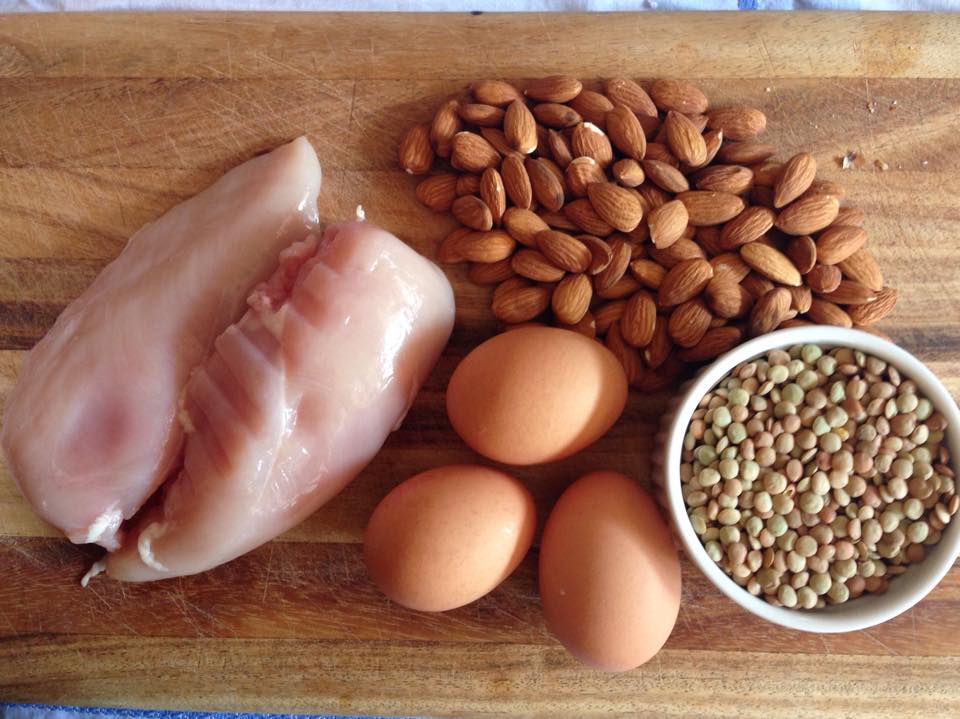Care
Soon
Soon
Soon
Soon
Soon
If on one hand it was important to keep a balanced diet before getting pregnant, it becomes even more important trying to adopt the most balanced and healthy possible diet, in order to prevent you and your baby from nutritional deficiencies. The trick? Eating a little bit of everything sparingly and without excesses.
Keep in mind that the development of your baby depends on your diet!
Here are some tips:
 |
Water: Hydrate yourself well and regularly to compensate the loss of water and mineral salts to which your body is subject due to the pregnancy. We advise you to drink at least 0,4 gal of water per day, checking your urine, which should be clear and translucent, to see if the quantity is enough for you. If you do exercise, the loss of water will be greater. In both cases if you see that the quantity isn’t enough, you should try to drink more water to compensate. |
| Fruits and Vegetables: Essential in diet, these should always be present in meals and snacks during the day. At this point it must borne in mind that at the beginning of the pregnancy you may not be immune to toxoplasmosis, caused by the parasite Toxoplasma Gondii. How to avoid it? Cook your vegetables, wash and disinfect well the fruit that you include on your diet so that you can eat them without any problem. We advise you to talk about this matter with your doctor to know if you are immune to this parasite. |  |
 |
Protein: Protein are essential for proper muscular functioning, you can find them in food like meat, fish, eggs, yogurt and cheese. |
|
Carbon Hydrates: Carbon hydrates can be divided in slow and fast absorption. You should choose those that provide energy without sudden glycemic peaks, in other words slow absortion carbon hydrates. If you don t know which ones are those, we have some advises that will help you understand what you should avoid:
However, keep in mind that there is no problem whatsoever if you eat fast absorption carbon hydrates, provided it is moderately. |
 |
 |
Fat: Fat is essential for the proper functioning of the brain, which needs to be constantly consuming these compounds, as well as the nervous system in general. We can find it in food like salmon, mackerel, cod and some greens like broccoli, spinach and cabbages. |
Pregnancy is compatible with physical exercise and sport, as long as you choose it and practice it rightfully.
It’s natural that with the pregnancy you feel less will to exercise your body or feel more tired. Nevertheless you should try to contradict that inactivity and try to acquire not only healthy eating habits, as to complement them with the practice of physical exercise, improving the ability of support of the development of your baby, diminishing the risk of developing arterial hypertension and diabetes, improving the sanguine circulation and promoting a healthy state to the heart.
Taking care of you, your taking care of your baby!
Even though gaining weight is normal during pregnancy, this increase mustn’t be excessive, being that you should choose activities that do not put your body under unnecessary pressure. Another benefit of the practice of physical exercise is the fight against stress, relaxing not only the mommy as well as the baby, which is important during pregnancy and after.
SDS Baby suggests in first place walks, ideal for all moments of pregnancy. We suggest as well, up to the 5º month, that you prevent joint pressure, water aerobics, swimming (swimming in your back to relieve backache) and cycling at moderate velocity. Yoga and gymnastics are also advised but preferentially under the guidance of an instructor to avoid adopting inadequate postures, Althought you should never forget that in addition to controlling your practice of physical exercise you must always be accompanied by a medical specialist.
For breast feeding it isn’t necessary to change in a restricted way your diet, your just have to assure that what you eat is enough to guarantee that your milk provides all the nutrients needed for your baby’s growth. Therefore you should ensure a healthy balanced diet.
You should include in your meals at least 4 pieces of fruit/vegetables, food rich in protein (meat, fish, eggs), and eat moderately bread, pasta and rice. Furthermore, don’t forget that drinking water is very important, being that the advised is from 0,4 to 0,53 galons per day.
The duplication of portions in meals or the increase of the water ingestion will not increase the production of milk. However, what you eat as impact on the quality of the milk, for that reason you should always eat in a healthy way and select fruits, vegetables and protein. Additionally you should try to eliminate caffeine and alcohol which pass on to the milk from the mommy’s circulation approximately 3 hours after ingestion. If you can’t cut caffeine try to ingest at maximum 2 or 3 coffees per day.
To be taken in account are the dairy products, rich in calcium, important not only to keep your bones healthy, but to safeguard the correct development of the newborn’s bone structure. You should try to ingest at least 2 portions of diary products per day so that you warrant the calcium reservations necessary to this process.
Also it isn’t recommended to smoke while breast feeding, since the nicotine, tar and carbon monoxide are likewise being consumed by the baby through the milk.
The vaccination is at the moment the most effective prevention against some serious diseases and its complications, constituting the main mean of the defense against them.
How do the vaccines work?
When a foreign substance, that our organism can’t recognize, enters in our body our immune system reacts in a way to produce antibodies that will fight the invader, named antigene. Vaccines are an antigene preparation, composed by complex microorganisms that cause disease, in a weakened state which prepare our organism making it immune to the diseases provoked by these microorganisms present in the vaccine. The vaccine “misleads” the baby’s organism, making it think that it is being invaded by the causative agent of the disease. The body reacts producing antibodies that remain active for a long time. If the vaccinated child is exposed to the disease where the microorganisms aren’t numb, she will be protected against it.
Babies are born immune to a series of diseases, because they receive protective antibodies through the mother’s placenta, this immunity is completed with the colostrum (name given to the first breast-feeding, where the milk carries innumerous defenses to the newborn). However, this immunity disappears during the first year, letting the baby exposed to the infectious agents. The vaccines allow the baby to be immune to several diseases even after losing the defenses acquired from the mother.
Vaccination Newborn
-BCG ( Tuberculosis)
- 1º Dose Hepatitis B
Vaccination at 2 month-old
-2º Dose Hepatitis B
-1º Dose VIP (Poliomyelitis)
-1º Dose Diphtheria, Tetanus, Pertussis (DTPa)
-1º Dose Diseases caused by Hib (Haemophilus Influenzae type B Virus)
Vaccination at 4 month-old
-2º Dose Diphtheria, Tetanus, Pertussis (DTPa)
-2º Dose Diseases caused by Hib (Haemophilus Influenzae type B Virus)
Vaccination at 6 month-old
-3º Dose Diphtheria, Tetanus, Pertussis (DTPa)
-3º Dose Diseases caused by Hib (Haemophilus Influenzae type B Virus)
Vaccination at 1 year-old
-Meningitis and septicemia caused by the bacteria meningococcus (MenC)
-1º Dose of the vaccine against Measles, Mumps and Rubella (VASPR)
Vaccination at 18 month-old
-4º Dose Diphtheria, Tetanus, Pertussis (DTPa)
-4º Dose Diseases caused by Hib (Haemophilus Influenzae type B Virus)
Ensure that your baby has the vaccines up to date in order to be protected.
Your baby’s skin is very delicate and can easily be irritated due do the humidity of the urine and feces. For this reason your baby needs to be changed 7 to 8 times a day, being that in every diaper change some cares and special attention are needed to relax your baby and preserve his vulnerable skin.
It is also important to pay attention if you are buying the proper diaper size, once the size below will provoke irritation of the skin due to friction and won’t work as well concerning leakages.
Here are some tips:
-Before submitting your baby to any action, prepare everything! Diapers, Baby wipes, Hygiene Products, Lotion…and make sure the diaper is wet, for that means that needs to be changed, which normally happens after meals.
-Put your baby in a clean and soft surface, that offers him peace and tranquility so that he can be used to the diaper change moment. Also it must be in a pleasant temperature and free from undesirable airflow.
-Wash and disinfect your hands before every diaper change. Make sure your baby is in a safe position.
-Open the diaper that the baby is wearing and wipe the baby wipes always from top to bottom, meaning, from the cleanest region to the dirtiest. These will provide to your baby’s tushy an effective and non-irritating cleaning. Then close the diaper and throw it out.
-To finish you can use soap or a gel to sanitize better the tushy region and end with a moisturizing cream.
The child’s oral health care must be seen as the foundation to a preventive education that provides normal conditions to an optimum growth, development and behavior.
Even after your baby’s teeth grow the gums need to be cleaned with gauze wet with water at least once a day and preferentially at night before going to sleep.
The European and American Pediatric Dentistry Academy recommends that the first visit to the dentistry must be up to the 1st year of age. This will do to the observation of the teeth’s health state and to report the parents on preventive attitudes and detect less adequate habits (like misuse of the baby bottle and pacifier).
The birth of the first teeth can cause some discomfort and symptoms like salivation, anxiety, loss of appetite or trouble sleeping. Try to consult your dentist to obtain suggestion on how to relieve this phase.
Some newborns may be born with teeth (natal teeth) or erupt during the first month of life (neonatal teeth). Normally the first “baby teeth” erupt between 6-8 months old and up to 2,5-3 years old, 20 temporary teeth must appear in the child’s mouth, although slight individual variations may be considered completely normal.